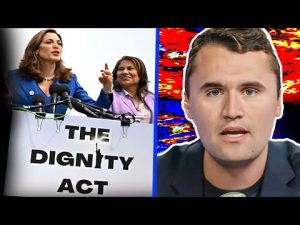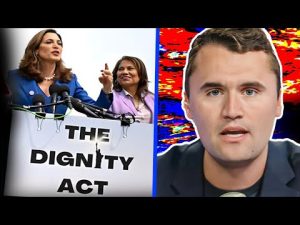In today’s political landscape, a storm is brewing. A storm named Rahm Emanuel. Rahm, often known for his strong-arm tactics and political savvy, has been on the minds of many as a potential presidential candidate for the Democratic nomination in 2028. With a dynamic history as the former mayor of Chicago, U.S. Congressman, and significant aid to Presidents Clinton and Obama, his potential candidacy piques interest among those who crave a decisive leader. But the question remains: can Rahm Emanuel be the beacon of change the Democratic Party desperately needs?
The frustration with the Democratic Party’s current trajectory is palpable. In recent years, progressives like AOC and Bernie Sanders have pulled the party to the far left, adopting platforms that, for many, appear out of touch with the average American’s needs. Enter Rahm Emanuel, whose centrist positions offer a stark contrast to the socialist drumbeat. He represents a seemingly bygone era of the Democratic Party that wasn’t afraid to embrace practicality over ideology. Emanuel’s reputation as a no-nonsense fighter could rally centrists and perhaps even lure some disillusioned voters from the other side of the aisle.
Emanuel stands as a figure who can potentially bridge the vast divide between political extremes. He doesn’t just speak to the left; he aims to resonate with a broader audience, from centrists to center-right supporters who often find themselves without a political home in the polarizing climate of today. But will he tailor his message to win over these potential voters? Will he extend an olive branch to those who disagree with him, or will he toe the line of his party’s radical elements? These are questions that deserve answers if he wishes to be more than just another name in the race.
While some may wonder if Emanuel’s centrist views are enough to win a nomination in a party drifting left, others see this as a refreshing opportunity. The Democratic Party has suffered alienation from moderate and independent voters, individuals who are tired of the constant pandering to fringe interests. Emanuel’s potential entry into the race represents a chance to embrace a broader strategy, one that considers the concerns of all Americans, not just those who shout the loudest.
Ultimately, Rahm Emanuel’s possible candidacy is a test. It challenges the Democratic Party to reflect on its direction and listen to the silent majority disillusioned with extreme rhetoric. Will Emanuel reinvent himself as the centrist voice of reason the country has been waiting for? His journey, if he decides to embark on it, will be a defining moment for the Democratic Party’s future. One can only hope he holds fast to principles and doesn’t shy away from the tough questions. After all, leadership isn’t about following the popular trend—it’s about setting a course, even when the waters are rough.







